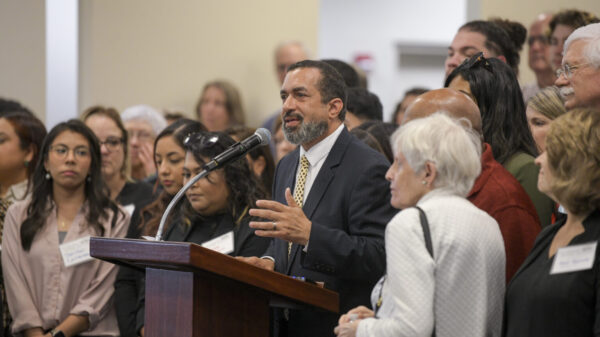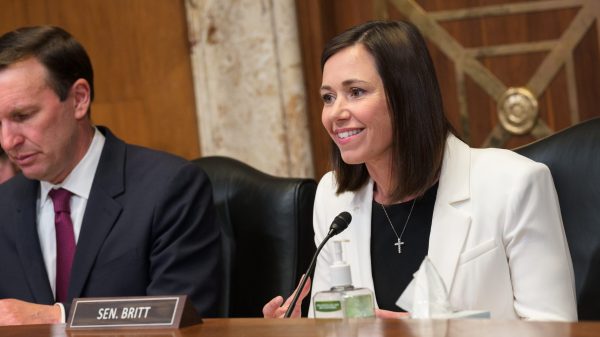By Brandon Moseley
Alabama Political Reporter
On Tuesday, March 15, the Alabama House of Representatives passed a State General Fund (SGF) budget level funding the Alabama Medicaid program. Of course in the world of Alabama Medicaid that amounts to an $85 million “cut” as the cost of the program keeps growing, growing faster than inflation, faster than state revenues, faster than GDP.
State Representative Darrio Melton (D-Selma) explains, “In 2012, Bentley set up a Health Care Task Force to figure out how best to reform Medicaid. The task force recommended and Bentley established new Regional Care Organizations, which Bentley called “progress in the way the Alabama Medicaid Agency operates, making it more effective and efficient.” According to the Governor’s office, “Alabama could receive up to $748 million in federal money over five years to help start and improve its RCO program.” This sweeping reform for Medicaid was set to go into effect October 1, 2016, but it looks like we’re going back to the drawing board.”
State Senator Jim McClendon (R-Springville) wrote, “The RCO model was adopted by this legislature because we are broke, and it is getting worse year by year. The RCO model was adopted to reduce the ever increasing pressure on the General Fund. It was never touted as a way to stop this growing demand, but it is the only way we know to slow this growth.”
Sen. McClendon continued, “Here are a couple of Medicaid financial facts concerning Medicaid’s needs for the 2017 fiscal year: 1. Medicaid needs $60M to provide the same services as provided in FY 2016.2. Medicaid needs an additional $60M to keep the RCO program on track.”
Sen. McClendon said, “The Federal Government has offered to inject 100’s of millions of dollars into the conversion to RCOs, but, in order to qualify we must pony up the match. That will continue to happen year after year for the next 5 years, yet, we have made NO preparation the immediate upcoming year.”
Arise Citizens’ Policy Project executive director Kimble Forrister issued a statement on Tuesday after the Alabama House passed the General Fund budget that cuts Gov. Bentley’s Medicaid request. Forrister said, “These Medicaid cuts would be devastating for Alabamians, our economy and our entire health care system. They could force many rural hospitals to close and prompt many pediatricians to leave the state. They would end coverage of essential services like outpatient dialysis and adult eyeglasses. And they would end promising new Medicaid reforms that would save money and keep people healthier. We simply can’t afford these Medicaid cuts.”
This problem has been growing for years.
In 1964 US President Lyndon Johnson (D) announced a series of policy initiatives including a “war on poverty” as part of his self titled “Great Society” plan. Chief among these was a joint federal state healthcare program called: Medicaid. The state and federal government would jointly subsidize the health care needs of poor seniors, poor children, poor disabled people, and poor people’s births. The State of Alabama’s State General Fund (SGF) crisis can trace its beginnings to this program. The war on poverty failed. Poverty did not end in America it just became government subsidized. Doctors, hospitals, and pharmacies all over Alabama became dependent on the free flowing government money. Powerful pharmaceutical lobbying efforts, excessive government regulation and a bizarre legal framework allowing you to sue your doctors and hospitals if you are unhappy with your medical outcome (often with little in the way of hard proof) drove and are driving the costs of care through the roof.
The largest part of the State General Fund budget (SGF) SGF by far is Medicaid. The $multi-billion government program pumps money all over the state to doctors, to Alabama’s struggling rural hospitals, to pharmacies, to nursing homes, etc. but that comes at an enormous cost.
According to US Debt Clock.org Medicaid and Medicare alone are costing the federal government over $1,026 billion a year. That dwarfs everything that we spend on national defense at $585 billion.
In Fiscal year 2014 the US Spent $492.3 billion on Medicaid alone. $5.24 billion of that was in Alabama. In fiscal year 2017 Medicaid is expected to top $600 billion. Growing entitlement spending is what is driving the national debt higher and higher and Congress and the Obama Administration has been unwilling to address this issue as the politicians are more concerned with their next elections than they are with addressing the issue.
Unlike Medicare, Medicaid is a joint state and federal program. While the cost of the program keeps soaring the states are expected to provide their always exploding match to the enormously costly entitlement program. In 2015 the Alabama legislature raised taxes on cigarettes, prescription drugs, and nursing home beds to try to keep up with the spiking costs at Alabama Medicaid while cutting most other state agencies. Now the legislature is going to be faced with a similar challenge when Governor Bentley calls another Special Session or two to address a problem that likely will repeat again next year, whatever the legislature decides to do.























































